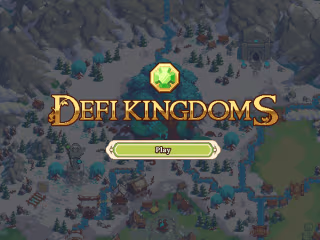Your Gaming Tokens Are More Trouble Than They're Worth

Victor Espinosa
Writer
Google Docs
Is The Dream Worth Dying For?
Interact with Web3 games at any time, and you're bound to encounter games with their own digital, fungible currencies tied to real-world value. Some games are made without them, like The Bornless or Wildcard. While other game economies have multiple currencies, think Star Atlas, DeFi Kingdoms, or Axie Infinity.
The need for implementing such currencies is often related to Play-to-Earn (P2E) mechanics, which incentivize players to participate in the game's economy and reward them for in-game activities and progress. But if games that don't implement currencies can still grow communities and reward their players, why do games want economies tethered to real-world value in the first place?
In short, they're trying to be more than just a game because they want to attract investors. Because they know that raising a few million $$ in a token sale is a great way to equate their project with success before they deliver a single product.

The Web3 gaming dream is to have a fully functioning in-game economy attached to real-world value that rewards your players, is controlled by your players, and runs smoother than IRL economies. But I dare you to show me one game that's succeeded in this regard. I double-dog dare you.
The dream is lofty, to say the least, but it's not an entirely foolish one to shoot for. There are practical reasons a game might launch their own token(s). But the potential problems are numerous and deadly to a project's success, so avoiding them altogether looks like the smartest move.
The Problems Are Legion
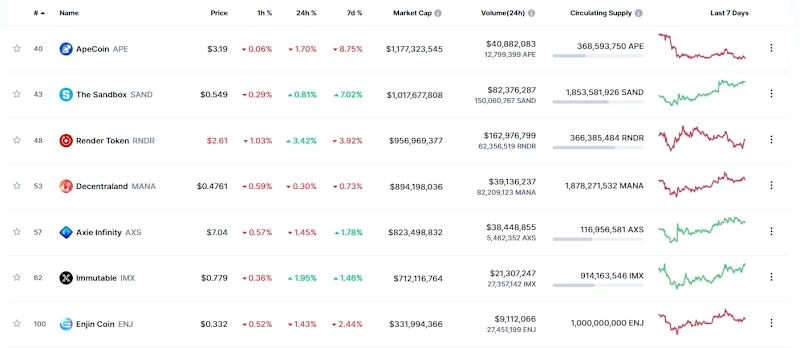
Roadblocks. Speed bumps. Great big barricades.
There are unending problems for studios that launch tokens. Some can be remedied with diligent design and a strong community, but others are entirely out of the studio's hands. For Web3 game projects that launch a token, they'll have to struggle with:
A target on their back for hackers - $3.8 billion in crypto was stolen in 2022, part of that from the Ronin chain, the blockchain that houses Axie Infinity. Security is a serious investment for Web3 games, and the more currencies they introduce, the more attack vectors they create.
An expectation of earnings - gamers are going to expect a defined amount of earnings per time spent gaming, and if that isn't communicated, or it's deliberately confusing and convoluted like Cryptoblades, you're going to earn a negative reputation real quick.
Attracts tradoors - the goal is not to support your game but to whale the shit out of it, manipulate the market, and crash the economy for a wild profit. Exploiters are everywhere, and they’ll roll you just like the Aavegotchi exploit if you’re not careful.
Using a volatile currency as a store of value - doesn't matter if you use a semi-stable coin or straight-up ETH, using volatile currencies as mediums for exchange is inherently chaotic and impedes the development of sustainable in-game economies. Also, if it requires more than three steps, most gamers will avoid it.
Gives a false sense of success - a game raises $5 million then broadcasts it all over the internet. That's a sign they must be doing something right, right? Wrong. Infinite Fleet is a great example of this; raising millions of dollars is not a sign you created a great game. It's a sign you created a great pitch deck and showed it to the right investors.
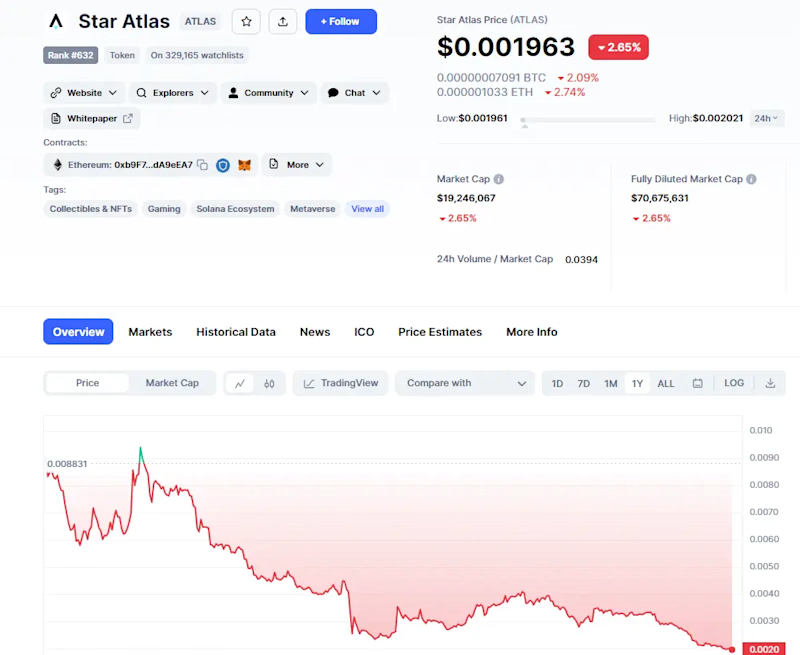
We haven't even touched on macro market conditions. What happens if you've done everything you can to construct a non-volatile currency, but the macro environment is one of warfare, climate disaster, and political unrest? Token goes down, that's what happens. Gamers see the red as a sign of something negative and sell, which further pushes your token down.
Gamers are vain, fickle creatures swayed by every vanity metric available. If they see a coin associated with your project dumping hard, it's impossible for them to differentiate the coin's success from the game's. Meaning they'll bypass your game for one that isn't perceived as a failure.
How Not To Fail
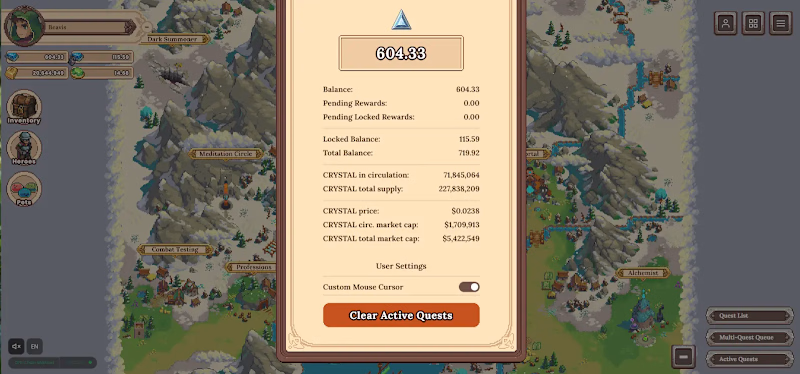
It's not as if the issues outlined are insurmountable. Numerous, perhaps. Nuanced, definitely. But impossible? Unlikely. Of course, no project has yet pulled off a sustainable, functioning economy. But I keep hearing we're early, so we'll see. In the meantime, there are potential solutions to explore:
Want to prevent hacks? Invest in the best security possible. Not just for your economy, wallets, and smart contracts but for your Discord, Twitter, and other social accounts as well.
Communication isn't just important, it might be the most important thing. Be upfront about what gamers expect from your game and economy, and you won't have people writing articles about your mishaps. Communicate what to expect from staking measures, what to expect in the future, how to use the token, etc.
Introduce mechanisms to deter whales--or seek to partner with them. Have an impressive buyback campaign, offer whale positions, and write robust contracts to handle massive funds transfers.
Once again, we come to communication. Communicate all the other selling points of the project. It's not just about numbers, it's about the team, their experience, their passion, and their ability to create a stellar product in bull or bear markets.
Of course, if you want to not fail in this regard, you could always not release a token. You always have the option of just making a kickass game.
Your Coins Are Probably Going To Zero
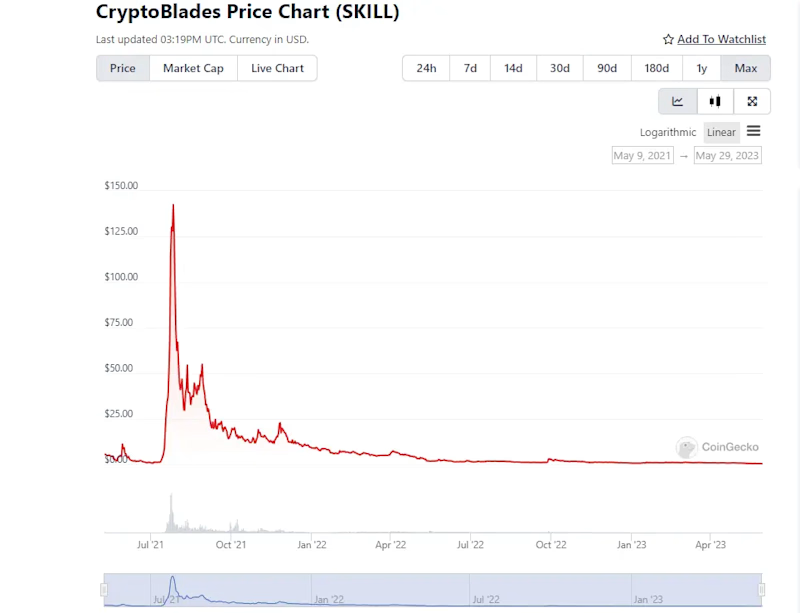
I said probably.
There's still a chance they capture value, grow a vibrant community, and work as part of a fully functioning economy. They could work extremely well as in-game currencies and rewards for dedicated community members.
But they're probably going to zero all the same.
I won't say they're completely useless, because they aren't. But if you see a new game pop up on your timeline and it has a native token, you should be more cautious than excited, and the first question you should ask yourself is, "Why did they feel the need to launch a coin?"
It's a question that bears answering. And if you or the project can't answer it, you know how good of an investment it is.
Horrible. It's a horrible investment, don't buy it.
At the end of the day, gaming coins are one of the biggest distractions in Web3 gaming. They distract everyone involved, from the devs to the investors, from the marketers to the actual gamers. The numbers are little more than a smokescreen for some awful games, and that's a problem.
And for anyone out there upset at this stance, again, I implore you to name a game that's winning on all fronts.
I dare you.



